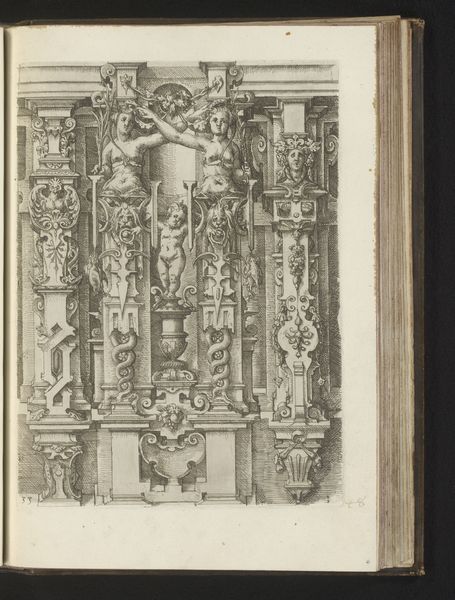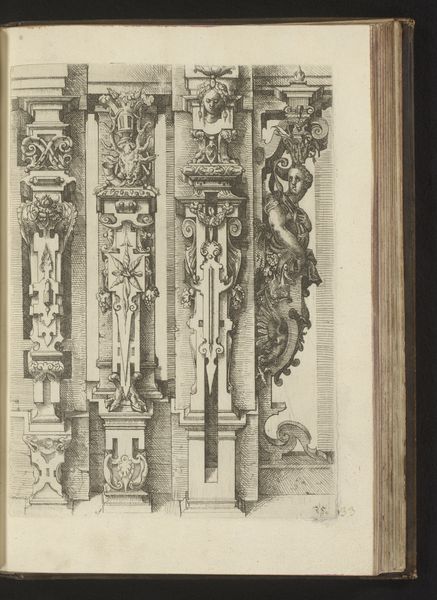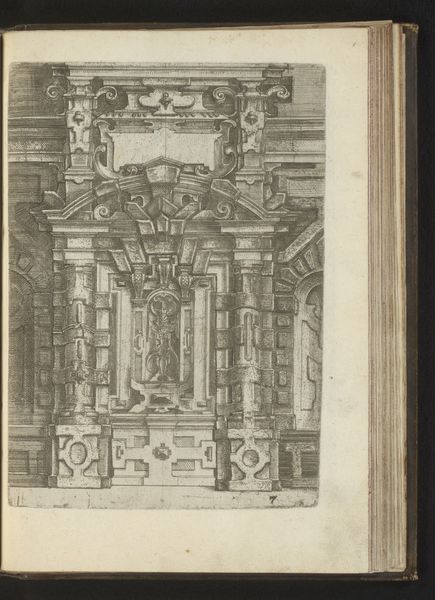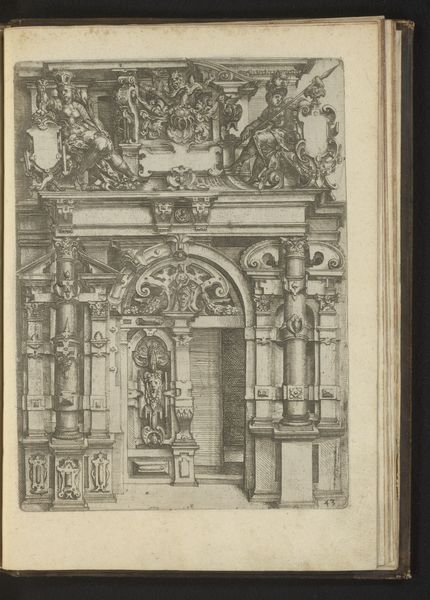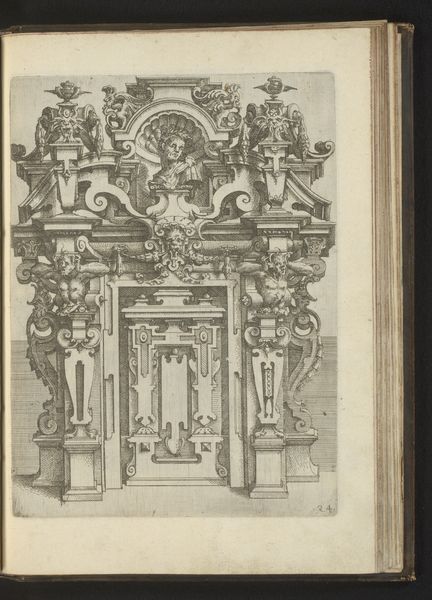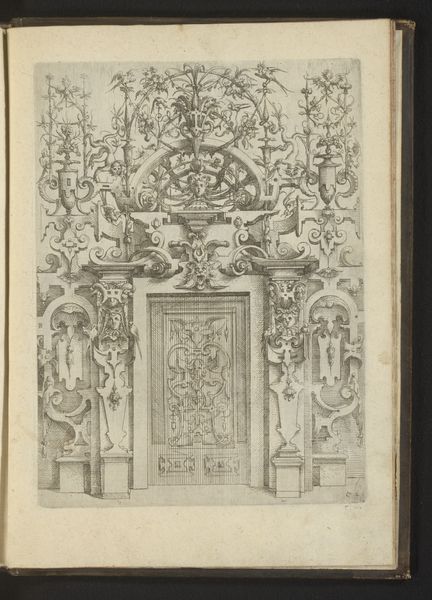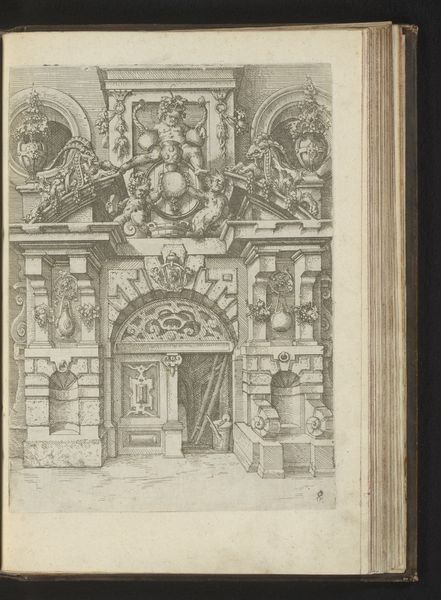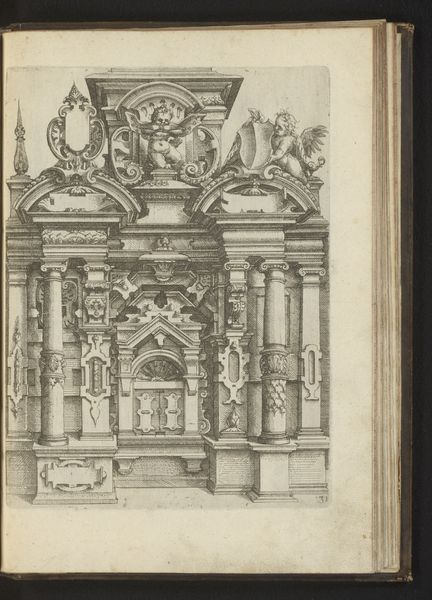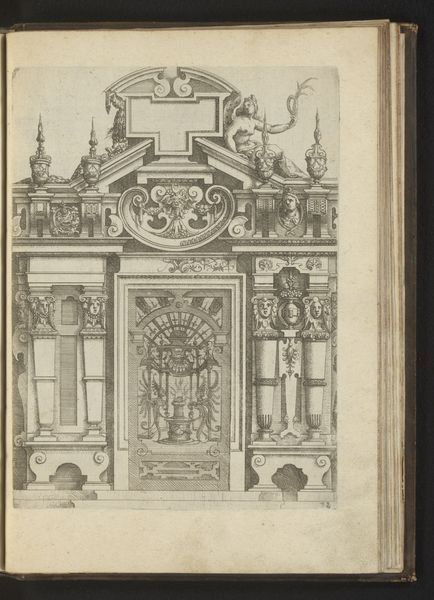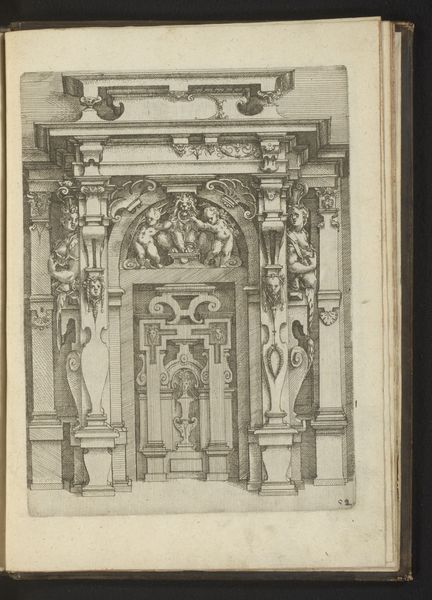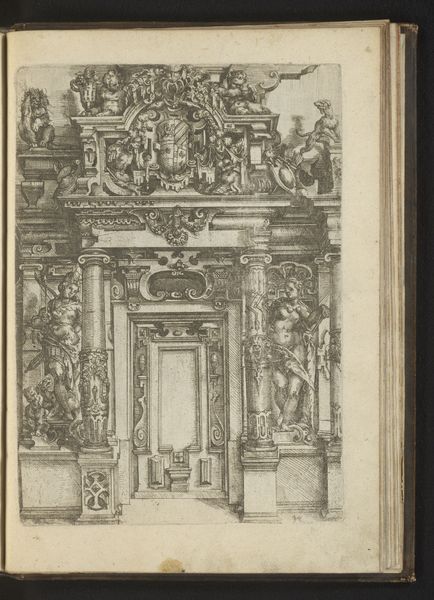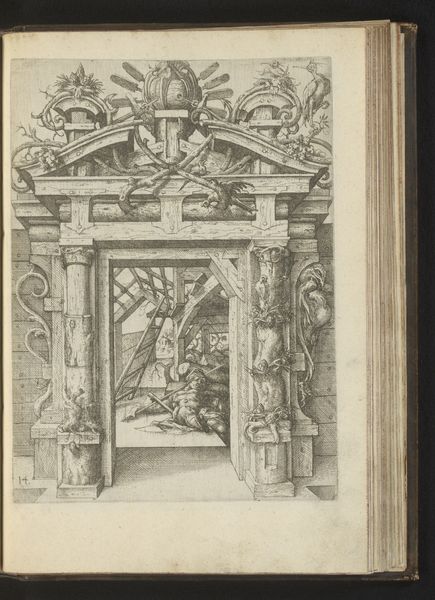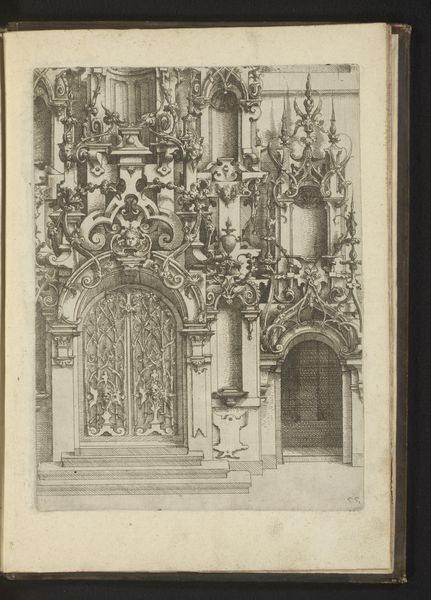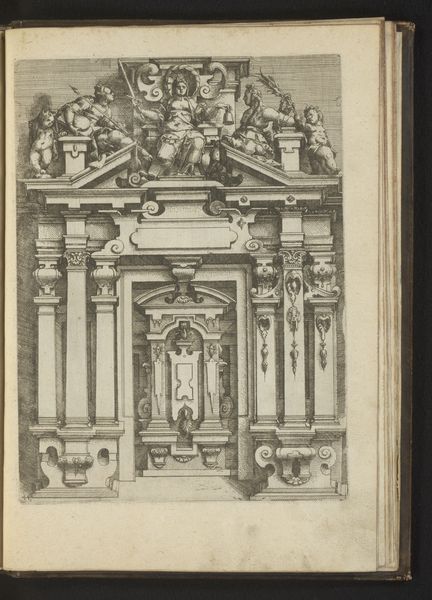
Portaal gedecoreerd met guirlandes, mascarons, helmen en saters 1593 - 1595
0:00
0:00
drawing, engraving
#
drawing
#
classical-realism
#
form
#
11_renaissance
#
line
#
history-painting
#
engraving
Dimensions: height 250 mm, width 186 mm
Copyright: Rijks Museum: Open Domain
This engraving of a portal decorated with garlands, masks, helmets and satyrs was made by Wendel Dietterlin around 1593 in Germany. It’s part of his book, Architectura, a collection of fantastical architectural designs. Dietterlin was deeply influenced by the Italian Renaissance, but he pushed its classical motifs to the point of excess. The result is a kind of proto-Baroque, anticipating the dramatic, theatrical style that would dominate European art in the 17th century. But look closer: this elaborate decoration isn’t just about aesthetics. In the context of the late 16th century, the display of wealth and status was a powerful tool for asserting social dominance. Buildings were not merely functional structures, but stages for performing power. Dietterlin's designs, while impractical, perfectly capture this spirit. To fully understand Dietterlin, consider the social and political context of his time. Architectural treatises and pattern books became increasingly important tools for architects and patrons. These resources, along with close attention to period documents, reveal how art and architecture reflect the values and aspirations of a society.
Comments
No comments
Be the first to comment and join the conversation on the ultimate creative platform.
